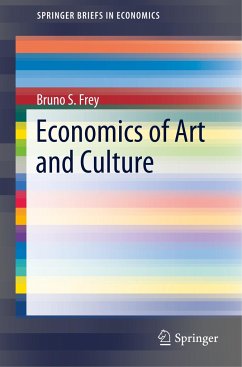
Hayek and the Conquest of Ignorance
Rules, Rational Action, Rational Social Order
Versandkostenfrei!
Versandfertig in 6-10 Tagen
98,99 €
inkl. MwSt.

PAYBACK Punkte
49 °P sammeln!
This book argues for a comprehensive reframing of Friedrich Hayek, one of the most influential economic and social thinkers of the twentieth century. Its focus is on the role of legal philosophy and legislation in understanding Hayek's views on social and economic planning, and in particular his critique of socialism.The book examines Hayek's later works on the shortcomings of legislation as the primary political tool used by governments to coerce otherwise free economic activity. It argues that Hayek's view of social and especially legal rules equates to a reformulation of his critique of pla...
This book argues for a comprehensive reframing of Friedrich Hayek, one of the most influential economic and social thinkers of the twentieth century. Its focus is on the role of legal philosophy and legislation in understanding Hayek's views on social and economic planning, and in particular his critique of socialism.
The book examines Hayek's later works on the shortcomings of legislation as the primary political tool used by governments to coerce otherwise free economic activity. It argues that Hayek's view of social and especially legal rules equates to a reformulation of his critique of planned economies, which has so far been understood in purely economic terms. The book argues that Hayek should be considered an important scholar in the realm of complexity theory, showing that his writing on intertwined legal and economic systems paved the way for a greater understanding of how individual agents and the 'spontaneous order' of the economy is inevitably regulated bythe rational social order brought about by moral and legal rules and institutions. The book itself seeks to break the tradition of studying Hayek's work from isolated legal or economic lenses. This will be a valuable resource for scholars across the social sciences, including within economics, political science, law, complexity theory, and philosophy.
The book examines Hayek's later works on the shortcomings of legislation as the primary political tool used by governments to coerce otherwise free economic activity. It argues that Hayek's view of social and especially legal rules equates to a reformulation of his critique of planned economies, which has so far been understood in purely economic terms. The book argues that Hayek should be considered an important scholar in the realm of complexity theory, showing that his writing on intertwined legal and economic systems paved the way for a greater understanding of how individual agents and the 'spontaneous order' of the economy is inevitably regulated bythe rational social order brought about by moral and legal rules and institutions. The book itself seeks to break the tradition of studying Hayek's work from isolated legal or economic lenses. This will be a valuable resource for scholars across the social sciences, including within economics, political science, law, complexity theory, and philosophy.












